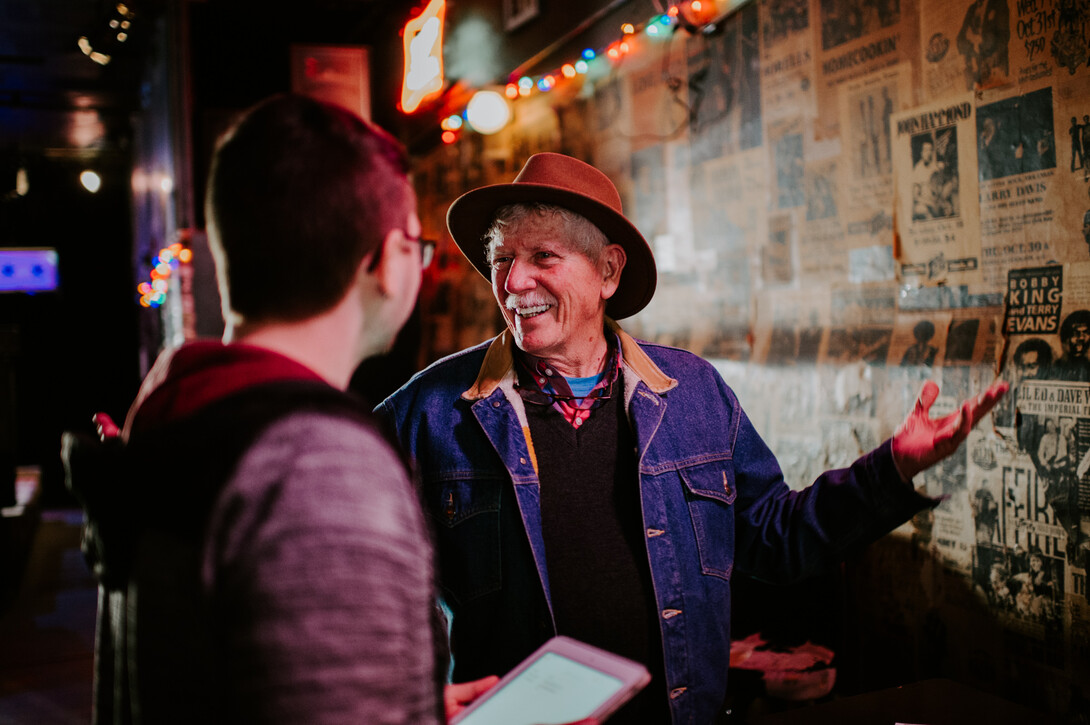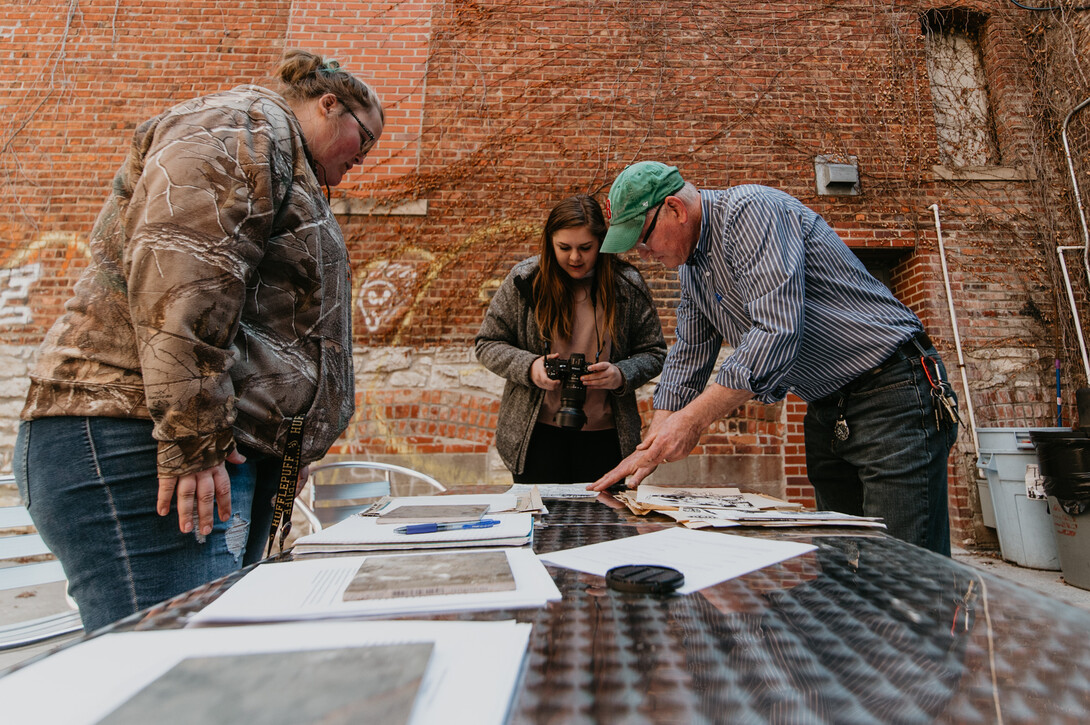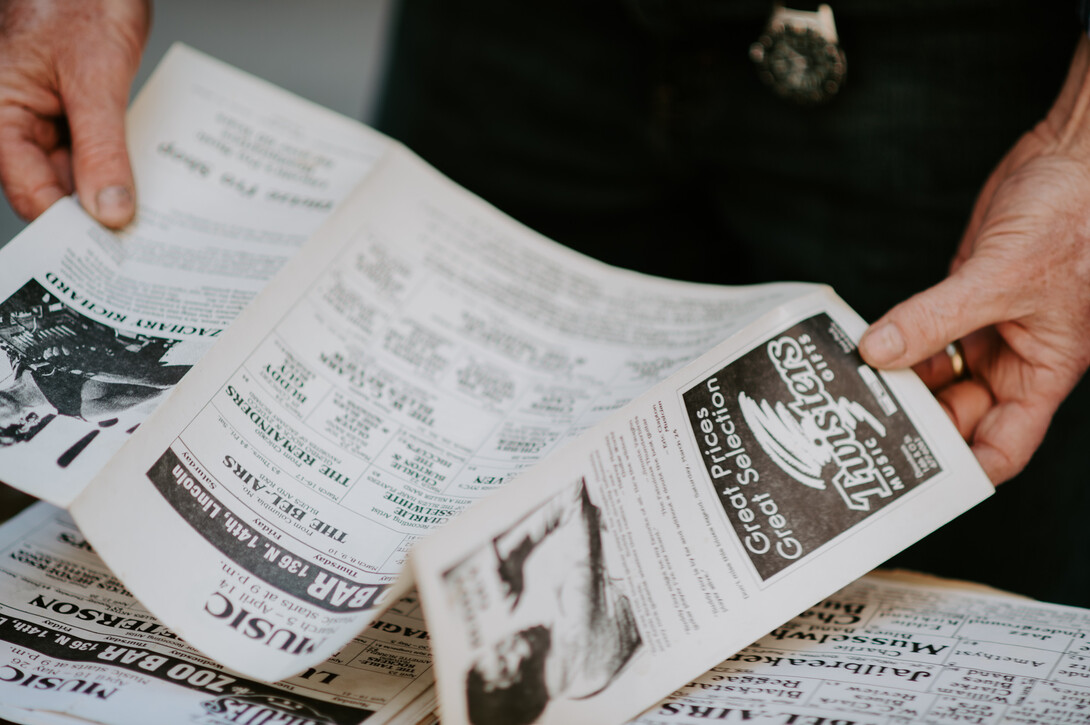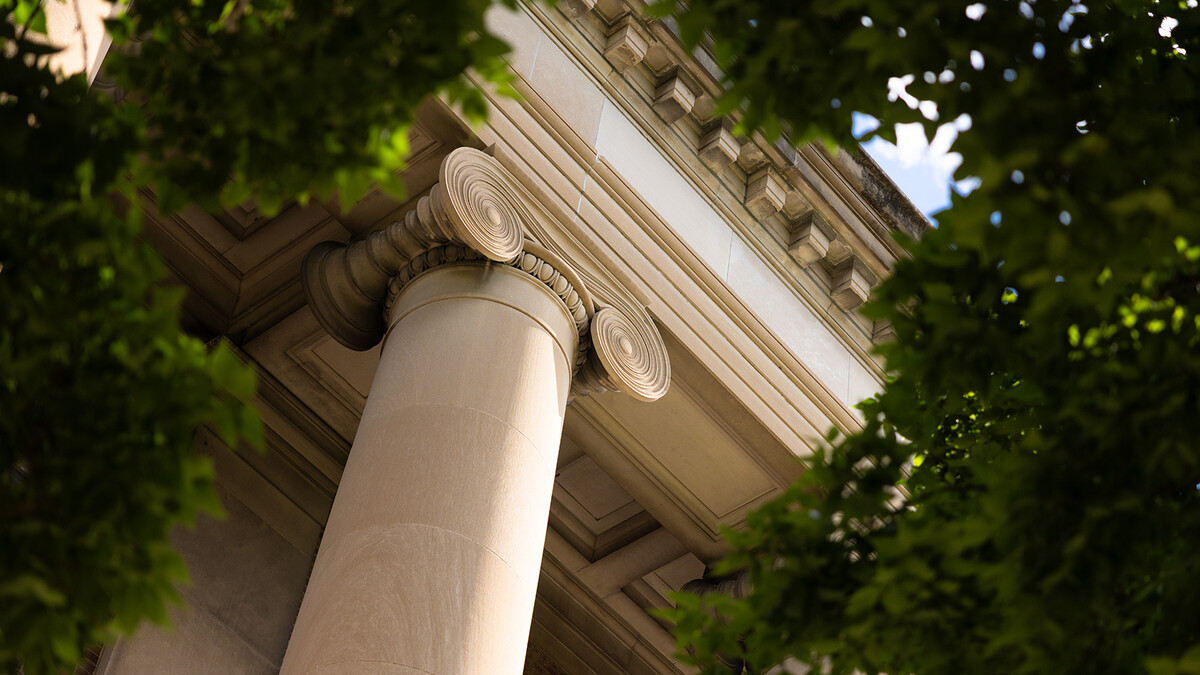
Downtown Lincoln’s Zoo Bar is part of the American blues story and some Huskers are hitting their groove documenting and preserving that lore.
University of Nebraska–Lincoln students enrolled in the History Harvest course spent time March 31 meeting with Zoo Bar patrons, musicians and staff — both current and former — to record oral histories, photograph and archive memorabilia and practice first-hand the techniques of preserving the past.
Patrick Jones, associate professor of history and ethnic studies, said he chose the Zoo Bar for this semester’s History Harvest because of its rich history and significance in the Lincoln community.
“It’s become a well-known spot for blues and roots music, and I think it’s important to maintain, preserve and share that history,” Jones said. “Both regulars and musicians who’ve played here have a real affection for this place because of the connectivity between the artists and the fans.”

Michael Dick, a doctoral student in history, has helped with many history harvest projects, and said this one is especially fun and is meaningful to the Zoo Bar and its patrons.
“This project is always a win-win-win, with community, students and the university all benefitting,” he said. “But everyone we’ve come in contact with has been so appreciative and it’s music, which is really cool to do.”
Students worked three hours in the Zoo Bar with patrons and musicians, but they’ve been gathering oral histories and digitizing artifacts in class, as well. They’ve also been studying the history of blues music, learning how to use digital archiving tools, video editing and much more.
“It’s really hands-on history,” Whitney Rittscher, a history and classics major from Clearwater, said.
For senior history major Jason Shonerd, of Beatrice, the class has been unique among his other courses.
“I wanted to get my hands dirty with historical work,” he said. “I’ve done things with archive papers, but I’ve never done any digitization or preservation.”
River Towne, a senior history major from Peru, was in awe at what he’d learned about Lincoln’s music scene.
“I interviewed a man who played with Magic Slim,” Towne said, referring to the revered blues artist who enjoyed playing at the Zoo Bar so much he moved to Lincoln in his later years. “They became friends and he shared with me some stories about Magic Slim that haven’t been documented before.”

The walls inside the bar are lined with faded posters and fliers dating back to the bar’s first musical acts in 1973. Jones said he and the students just discovered that copies of many of those posters are in storage at the bar. This opened an expanded opportunity for the students in class and into the next academic year.
“Usually after the event, we’re working on getting everything edited and ready to be uploaded into the digital archive online, but now we’re going to be coming up with a whole new game plan, because there is so much more history that we can document and digitize,” he said.
Students in the course will have the option of continuing the project as an independent study course, Jones said, and some have already expressed interest.
The History Harvest project was started in 2010 by Jones and William Thomas. Its goals are to teach students about digital archiving and to raise visibility and public conversation about history and its meaning, as well as provide a new foundation of publicly available material for historical study, K-12 instruction, and lifelong learning.







